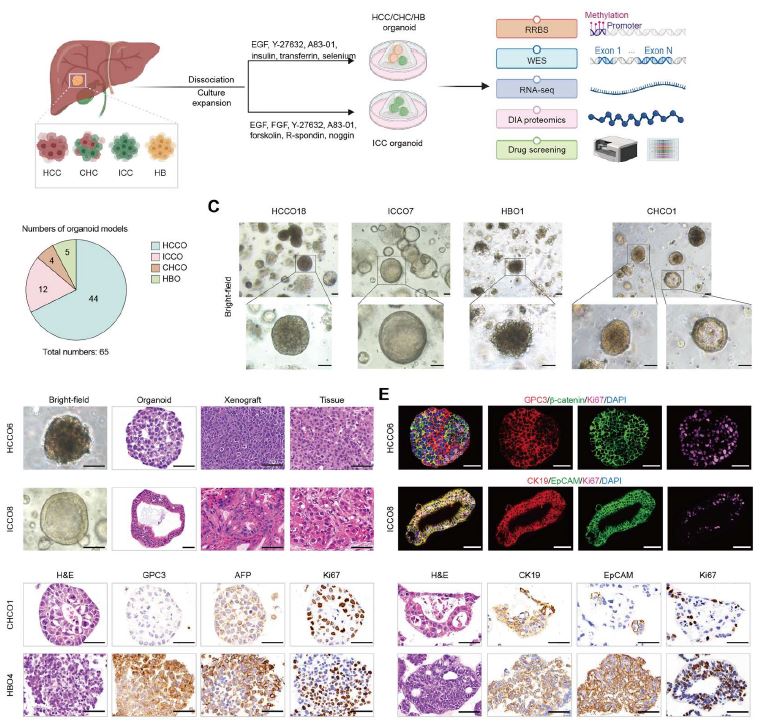Jurisdiction:
China
Organ System:
Liver
Funding Organizations:
- National Natural Science Foundation of China
- Science and Technology Commission of Shanghai Municipality
- National Cancer Institute, USA
Research Organizations:
- Fudan University, China
- Chinese Academy of Sciences, China
- Washington University in St. Louis, USA
- Icahn School of Medicine at Mount Sinai, USA
- Baylor College of Medicine, USA
- National Cancer Institute, USA
Principal Investigators
:- Qiang Gao
- Yidi Sun
- Hu Zhou
- Hans Clever
- Jia Fan
Publication:
External Link:
Organoid models have the potential to recapitulate the biological and pharmacotypic features of parental tumors. Nevertheless, integrative pharmaco-proteogenomics analysis for drug response features and biomarker investigation for precision therapy of patients with liver cancer are still lacking. We established a patient-derived liver cancer organoid biobank (LICOB) that comprehensively represents the histological and molecular characteristics of various liver cancer types as determined by multiomics profiling, including genomic, epigenomic, transcriptomic, and proteomic analysis. Proteogenomic profiling of LICOB identified proliferative and metabolic organoid subtypes linked to patient prognosis. High-throughput drug screening revealed distinct response patterns of each subtype that were associated with specific multiomics signatures. Through integrative analyses of LICOB pharmaco-proteogenomics data, we identified the molecular features associated with drug responses and predicted potential drug combinations for personalized patient treatment. The synergistic inhibition effect of mTOR inhibitor temsirolimus and the multitargeted tyrosine kinase inhibitor lenvatinib was validated in organoids and patient-derived xenografts models. We also provide a user-friendly web portal to help serve the biomedical research community. Our study is a rich resource for investigation of liver cancer biology and pharmacological dependencies and may help enable functional precision medicine.

